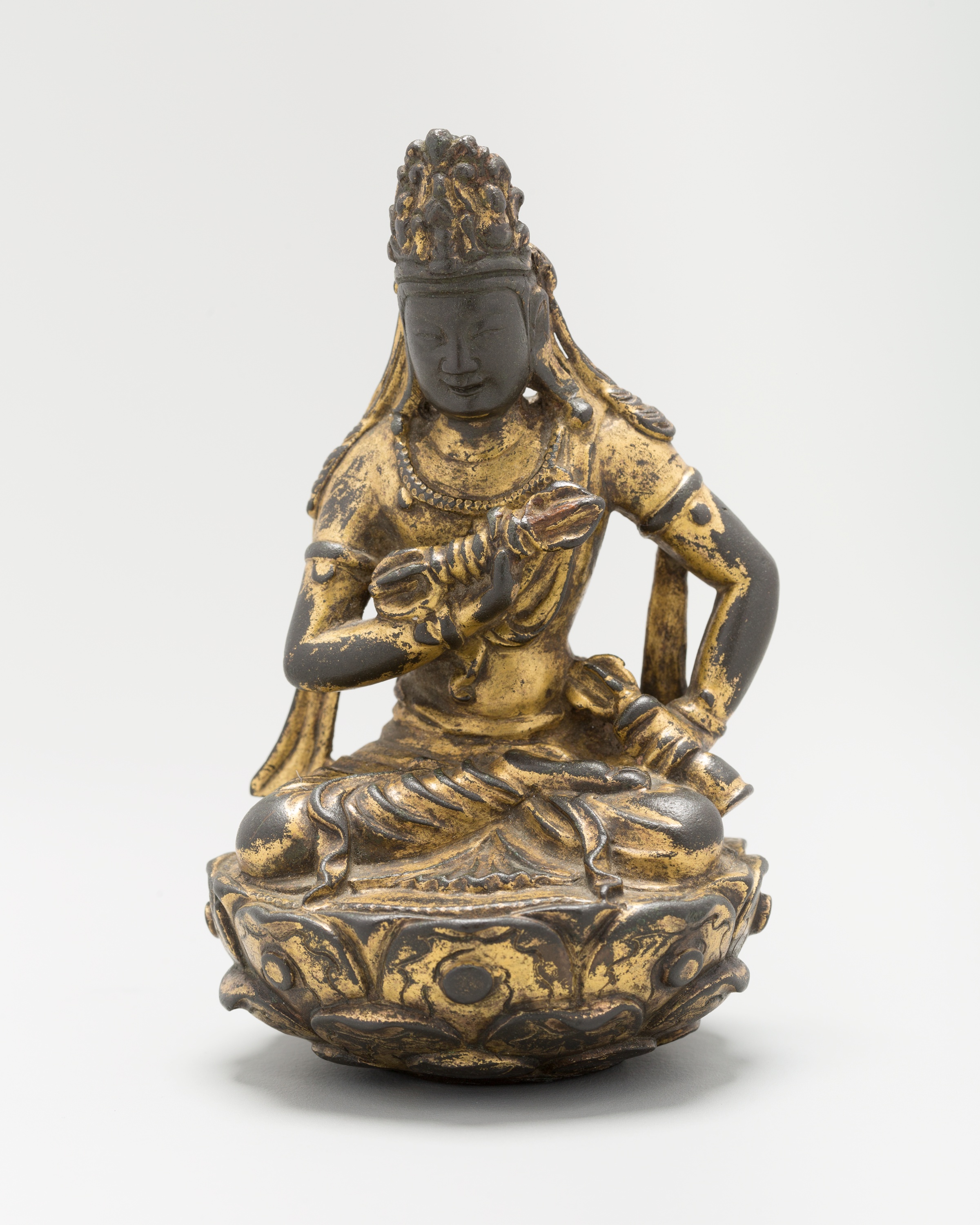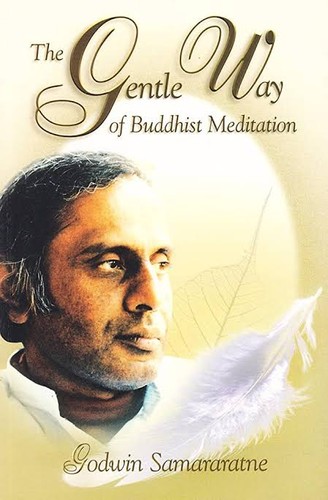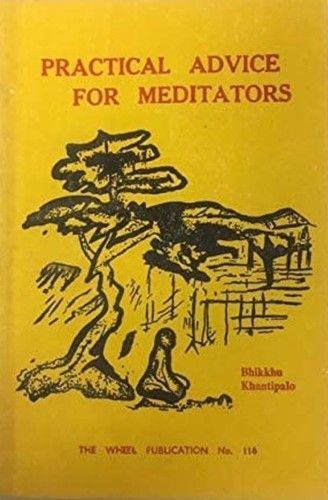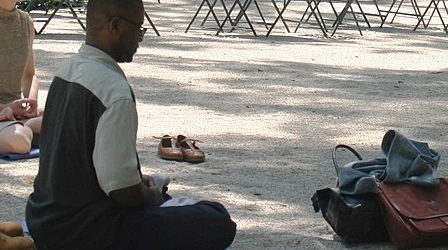Right Effort
Subscribe to this topic via: RSS
Vayama is the application of effort to overcome our problems by surmounting the unwholesome and encouraging the wholesome qualities within ourselves.

In this symbolic representation of Right Effort at the Art Institute of Chicago, Vajrasattva looks down compassionately at his students as he wields a vajra to clear away their (our) obscurations.
Table of Contents
- Books (15)
- Canonical Works (79)
- Readings (49)
- Audio/Video (44)
- Reference Shelf (2)
- Related Topics (4)
Books (15)
Featured:
See also:
Canonical Works (79)
Featured:
-
⭐ Recommended
‘What the hell, Kāḷī!’
-
Oh, when will I stay in a mountain cave,
alone, with no companion,
discerning all states of existence as impermanent? -
⭐ Recommended
… you should ignore that person’s impure behavior
-
⭐ Recommended
In a practical meditation teaching, the Buddha describes five progressive approaches to arresting unwanted thoughts.
-
… for a long time you have learned the teachings, remembering them, reciting them, mentally scrutinizing them, and comprehending them theoretically. But a disciple should value following the Teacher, even if asked to go away …
-
⭐ Recommended
The Buddha encourages the mendicants to recollect the Triple Gem to abandon any fear that may arise on the path.
-
⭐ Recommended
If a bhikkhu seeks delight in [the senses], welcomes them, and remains holding to them, he is called a bhikkhu who has swallowed Mara’s hook. He has met with calamity and disaster, and the Evil One can do with him as he wishes.
-
⭐ Recommended
Move in your own resort, bhikkhus, in your own ancestral domain. Mara will not gain access to those who move in their own resort.
-
Greed is to be abandoned neither by body nor by speech…
-
who wants to listen, memorizes the teachings, examines their meaning, and practices accordingly, and is diligent when it comes to skillful qualities can expect growth, not decline, in skillful qualities, whether by day or by night.
-
But then, a mendicant grounded on these five things should develop four further things. They should develop the perception of ugliness to give up greed, love to give up hate, mindfulness of breathing to cut off thinking, and perception of impermanence to uproot the conceit ‘I am’.
-
Bhikkhus, these six bases for contact—if untamed, unguarded, unprotected, unrestrained—are bringers of suffering.
-
That was not the earth splitting open, Samiddhi. That was Mara…
-
⭐ Recommended
Mendicants, there are four ways of practice. What four?
- Painful practice with slow insight,
- painful practice with swift insight,
- pleasant practice with slow insight, and
- pleasant practice with swift insight.
-
Monks, there are these four modes of practice. Which four? Intolerant practice, tolerant practice, self-controlled practice, and even practice.
-
Mendicants, there are these five kinds of emotional barrenness. What five? …
-
These are the five benefits of good conduct.
-
When a mendicant has faith, approaches, pays homage, asks questions, actively listens to the teachings, remembers the teachings, reflects on the meaning, and practices accordingly, the Realized One feels inspired to teach [them].
-
Mendicants, meditate in retreat. A mendicant in retreat truly understands.
-
One who does not seek delight in suffering, I say, is freed from suffering.
-
Though many creatures crawl about,
Many terrors, flies, serpents,
The great sage gone to his empty hut
Stirs not a hair because of them. -
… when a bhikkhu develops and cultivates the Noble Eightfold Path, whenever evil unwholesome states have arisen, he intercedes to disperse and quell them.
-
Mendicants, all the hard work that gets done depends on the earth…
-
Having made a basket of acacia leaves or of pine needles or of myrobalan leaves, I will bring water…
-
Rather, the breakthrough to the Four Noble Truths is accompanied only by happiness and joy.
-
Sensual pleasures are suffering, Eraka!
-
I’ll stay in the grove.
See also:
Readings (49)
Featured:
-
🥇 Best of
Effort is needed, but can be excessive, unreflectively mindless, unaware of gradually developed results, or misdirected. Contentment can be misunderstood to imply that skilful desire has no role in practice, and lead to passivity
-
One who has fully realized the truth of not-self thereby goes beyond the fear of death.
-
Drawing on extensive ethnographic research in Dharamsala, India, this article considers how sems pa chen po (vast or spacious mind) can be understood as emblematic of the Tibetan Buddhist view of resilience.
-
Participants were more aware of Present Moment Experience (PME) when they had an activated intention to be mindful and when they felt good, and not very busy or hurried, and were not involved in social interaction. They were more reactive to PME when they experienced unpleasant affect, and when they were hurried or tired.
-
To better understand how meditation influences the sensory experience, we used arterial spin labeling functional magnetic resonance imaging (fMRI) to assess the neural mechanisms by which mindfulness meditation influences pain in healthy human participants. After 4 d of mindfulness meditation training, meditating in the presence of noxious stimulation significantly reduced pain unpleasantness by 57% and pain intensity ratings by 40% when compared to rest.
-
… if a monk avoids positive or negative inclinations when using his senses, Mara would not get access, would not get a hold.
-
Overall, the results of this first review on the topic support the efficacy of MBIs for changing obesity-related eating behaviours, specifically binge eating, emotional eating and external eating.
-
Mindfulness provides a breathing space to take stock and re-energize our actions from a place of care, awareness and creativity.
-
Someone like that is truly amazing, is truly a friend!
-
Now, for as long as I live, bless me so that I shall not deceive myself with so many pointless acts, But end my days striving in the practice of profound Dharma.
-
Here the great Tibetan Buddhist master Patrul Rinpoche outlines the general confession given by the five great sages, “the god Yaśasvī Varapāla (grags ldan mchog skyong), the nāga king Takṣaka (klu rgyal ’jog po), the yakṣa Ulkāmukha (skar mda’ gdong), the rākṣasa Matyaupāyika (blo gros thabs ldan), and the human being Licchavi Vimalakīrti (dri med grags pa).”
-
Exert yourself in the Dharma, therefore, Lodrö, Before you must bear the burden of your misdeeds. Don’t squander this freedom while you have the chance, O child, but apply your mind to the cultivation of virtue.
-
You may fall prey to the curses and spells of demons and other ethereal entities…
See also:
Audio/Video (44)
Featured:
-
⭐ Recommended

-
⭐ Recommended
We manifest our humanity, we are most fully human, in learning.
-
🥇 Best of
Look at the body with wisdom and realize this. If your house is flooded or burnt to the ground, whatever the threat to it, let it concern only the house. If there’s a flood, don’t let it flood your mind. If there’s a fire, don’t let it burn your heart. Let it be merely the house which is outside of you that is flooded or burned. Now is the time to allow the mind to let go of its attachments.
-
An interview with meditation instructor and author Shaila Catherine, which delves into ideas from her latest book “Beyond Distraction: Five Practical Ways to Focus the Mind.”
-
You’re not trying to push the stress away, or annihilate it or get rid of it, but just lifting it up and seeing it and then using it as a bridge so that it can take one to kindness and compassion.
-
Your job isn’t to cure. It’s to care.
-
If you’re peaceful, learn from peace. If you’re not peaceful, learn from not-peace.
-
Here, Ayya Anandabodhi delivers a talk on the importance of the satipaṭṭhāna practice, particularly its role in mental health and awakening.
-
In this talk, Ayya Santussika explains chöd, the Tibetan method of cutting through the hindernaces, mainly fear, through meditative ritual. Ayya Santussika also reviews Lama Tsultrim’s book “Feeding Your Demons”.
-
We talk about “Right View” and “Wrong View,” but what we actually have, if we really look at our minds, is confusion!
-
Here, I’d like to talk about those things that the meditator will often misunderstand to be unbeneficial or improper practice or a sign that the practice is going wrong when in fact these things are a sign that one is practicing correctly.
-
In this episode, the Buddhist Auntie discusses how anger creates suffering for ourselves and the world, and how mindfulness can help control it. She uses the metaphor of clouds and storms to illustrate the effects of anger on the mind.
-

-
 9 min
9 min
See also:
Reference Shelf (2)
Featured:
-
Progress in meditation is about giving up and letting go, not becoming and taking on new constructs.
See also:



